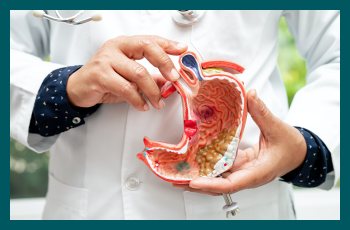Gastro and food poisoning defined
To set the stage, imagine your digestive system as a bustling metropolis. Gastroenteritis is akin to a widespread civil unrest within this city—chaos erupts, disrupting the usual harmony. It's characterised by the inflammation of the stomach and intestines, typically triggered by a viral invasion, although bacteria and parasites can also instigate this turmoil. On the flip side, food poisoning is more like a precision strike—specifically, the ingestion of harmful bacteria, viruses, or toxins lurking in contaminated food or beverages.Causes behind gastro and food poisoning
The root causes behind these disturbances paint a picture of how these disruptions come to be:- Gastro: Viruses such as norovirus and rotavirus are frequent instigators, turning your digestive tract into a battleground. Bacteria like E. coli and Salmonella, along with parasites, can also be culpable. Transmission often occurs through direct contact with an infected person or by sharing personal items like utensils and towels, highlighting the importance of good hygiene practices.
- Food poisoning: This condition is directly tied to dietary indiscretions—consuming food or drink tainted with pathogens. Notorious offenders include Salmonella, E. coli, Campylobacter, and Listeria. Unlike gastro, the blame here lies squarely on what you've eaten, underscoring the critical role of food safety measures.
Reading the signs: Distinguishing symptoms
Recognizing the warning signals emitted by your body is crucial for diagnosing and addressing these issues:- Gastro: Expect a symphony of discomfort including diarrhoea, vomiting, nausea, and abdominal cramps. Additional accompaniments may include fever and headaches, further complicating the orchestration of daily activities.
- Food poisoning: While the repertoire of symptoms overlaps with those of gastro, food poisoning often announces its presence with a more abrupt onset. Chills, weakness, and in severe instances, bloody stools, serve as stark reminders of the body's distress signal.
Diagnosing the disruption: Identifying the cause
Pinpointing the exact nature of the disturbance requires a bit of detective work:- Gastro: Diagnosis is primarily based on the constellation of symptoms presented. In some cases, stool samples may be analysed to identify the offending pathogen, providing a clearer picture of the underlying cause.
- Food poisoning: Similarly, diagnosis hinges on symptomatology. However, in severe or prolonged cases, blood or stool samples may be examined to isolate the contaminant, guiding the treatment approach.
Treatments for Gastro and Food Poisoning
Addressing these conditions involves strategies aimed at mitigating symptoms and promoting recovery:- Gastro: The focus is on rehydration and rest. Oral rehydration solutions can replenish lost fluids and electrolytes, serving as a lifeline during this tumultuous period. While antiviral medications are seldom prescribed, they may be considered in specific scenarios.
- Food poisoning: Rehydration remains paramount. Antibiotics may enter the scene if bacterial culprits are identified, though they are ineffective against viral agents. The key is to support your body as it fights off the invaders.
Knowing when to call a doctor?
Recognizing the red flags is essential for timely intervention:- Signs of severe dehydration, such as dry mouth, reduced urination, and dizziness, warrant immediate attention.
- Presence of blood in stools or vomit, high fever, and persistent symptoms beyond a few days are clear indicators to consult a healthcare provider.
Can an online doctor help through telehealth appointment?
In our digital age, telehealth offers a convenient avenue for seeking medical advice without leaving the comfort of your home. Virtual consultations enable healthcare professionals to assess your condition, provide guidance, and even prescribe medication if necessary, determining whether in-person care is required.Frequently Asked Questions: Demystifying Myths and Misunderstandings
Can gastroenteritis be food poisoning?
Not exactly. While both involve gastric distress, gastroenteritis refers to inflammation of the stomach and intestines, often due to viral infections spread through various means. Food poisoning specifically results from ingesting contaminated food or drink.How long does gastro food poisoning last?
Recovery times vary, but most people start feeling better within a few days to a week. The duration depends on the severity of the illness, the type of pathogen involved, and individual immune response.How to sleep with gastro?
Elevate your head while sleeping to alleviate nausea, stay well-hydrated, and consider using over-the-counter medications to manage symptoms. Creating a calm and comfortable environment can also aid in restful sleep.How to heal your gut after food poisoning?
Begin with a bland diet, gradually reintroducing more varied foods as your stomach permits. Incorporating probiotics can help restore beneficial gut flora. Adequate hydration and patience are key to allowing your digestive system to heal. Armed with the knowledge of how to distinguish between gastro and food poisoning, you're now better prepared to navigate these challenges. Understanding the nuances between these conditions enables you to take proactive steps towards managing your symptoms, seeking appropriate medical advice, and ultimately, recovering more swiftly. Remember, your digestive health is a cornerstone of your overall well-being. By staying informed and vigilant, you can minimise the impact of these common ailments on your life. As we conclude, let's reflect on the importance of preventive measures—good hygiene practices, safe food handling, and a balanced diet—all play pivotal roles in safeguarding your digestive health. Next time you encounter a bout of stomach trouble, you'll be equipped with the insights to tackle it head-on.
Consult an Online Doctor in 15 mins










 Facebook
Facebook Instagram
Instagram LinkedIn
LinkedIn



